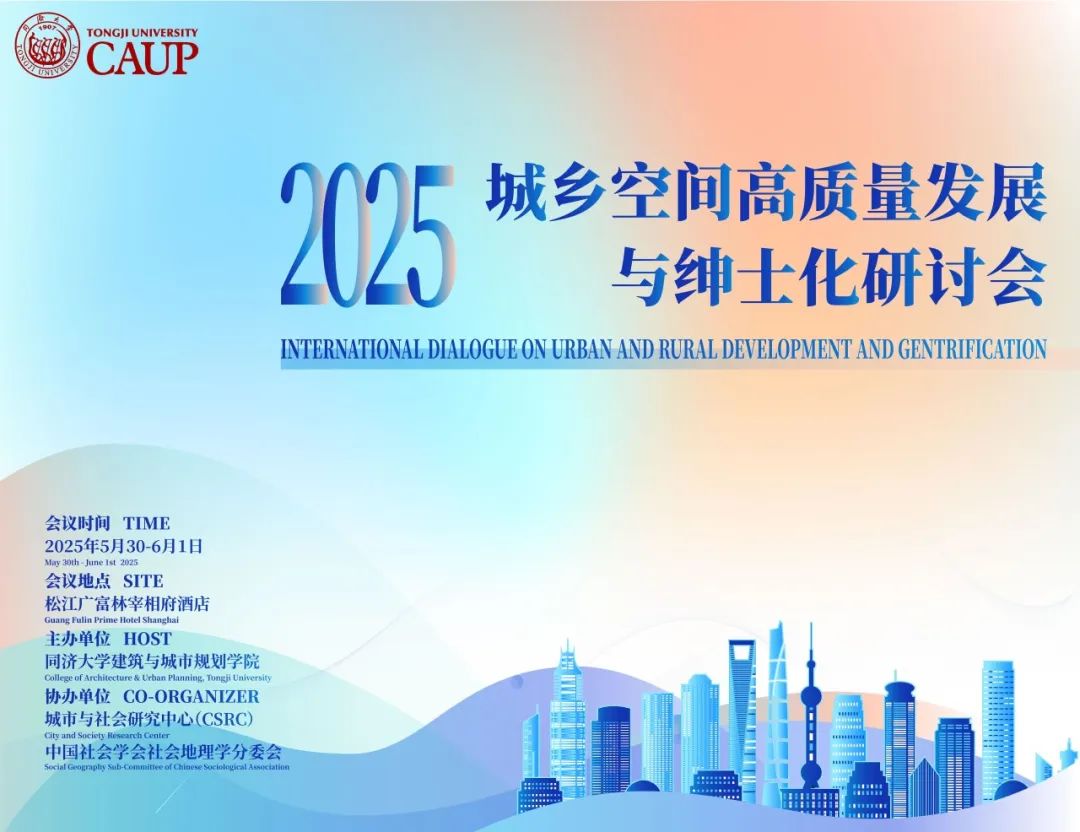

Call for papers
Special Issue
Rethinking Redevelopment and Gentrification in Urban and Rural China
Transactions in Planning and Urban Research invites submissions for a special issue on the socio-spatial dynamics of redevelopment and gentrification in contemporary China, focusing on both urban and rural contexts.
Theme Overview
In recent decades, China's rapid urbanization and rural transformation have spurred waves of redevelopment across diverse regions—from inner-city neighborhoods undergoing urban renewal to rural villages reconfigured for tourism, ecology, or industrial expansion. These development processes and their socio-political consequences have been interpreted through different theoretical lenses, some of which emphasize the influence of (globalizing) capital logics in driving China’s redevelopment whilst others highlight China’s territorial logic. For example, planetary gentrification views China’s redevelopment as being motivated by logics of capital accumulation and leading to state-led mass displacement (Hamnett, 2020; Lees, 2024; Lees et al., 2016). Rather than market-driven gentrification, China’s redevelopment is driven by gentrification as a state strategy (Smith, 2002; Wu, 2016). In contrast, state entrepreneurialism purports that urban redevelopment is a form of statecraft whereby the Chinese state aims to achieve economic and extra-economic objectives by selectively using market instruments (Wu, 2018; Wu et al., 2024). Under state entrepreneurialism, displacement is not the final outcome of redevelopment. Instead, displacement forms part of a wider resettlement process where displaced residents are resettled to dedicated settlements and reterritorialized under the leadership of the state (Wang, 2022). The resettlement of residents reflects the Chinese state’s need to follow the country’s territorial logic to maintain social stability (Robinson et al., 2024; Wang, 2024).
By juxtaposing gentrification and state entrepreneurialism, we are not suggesting that both processes are mutually exclusive. Instead, concurring with Parnell and Robinson's (2012) argument that different urban governance logics may co-exist in the same context, we believe that redevelopment in China can take on diverse forms and logics depending on the different needs and objectives by the state and other stakeholders. Following this line of logic, we argue that China’s redevelopment can be a fruitful platform to add new narratives to and create deeper dialogues between different conceptualizations of urban redevelopment including but not limited to gentrification and state entrepreneurialism.
This special issue therefore welcomes contributions that draw on different concepts to explore China’s governance models, land regimes, forms of state-market-civil society interactions, and socio-economic consequences of redevelopment. We also welcome contributions that examine how different social groups—including migrants, original villagers, low-income residents, and emerging middle-class populations—are affected by and respond to these changes.
Suggested Topics
We invite empirical, theoretical, and comparative studies on themes including but not limited to:
State-led redevelopment and its socio-spatial consequences
Urban village upgrading, suburban transformation, and forced resettlement
Gentrification and redevelopment in second-tier or smaller Chinese cities
Rural tourism, ecological restoration, and their gentrifying effects
Class and identity politics in spatial restructuring
Social consequences of urban redevelopment
Comparative gentrification studies between Chinese and Global South contexts
Resident resistance, grassroots activism, and community responses to redevelopment
Methodological innovations in detecting and measuring gentrification
Submission Guidelines
Manuscripts should be prepared according to TPUR journal’s guidelines, available on the journal website (https://mc.manuscriptcentral.com/tup). Submissions should be sent by the specified deadline.
For special issue consideration (without attending the special session), please submit a 300-word abstract with a title and relevant keywords before the deadline (June 20, 2025). For queries on the special issue (TPUR) and abstract submission, please contact yxiao@tongji.edu.cn.
Authors are encouraged to submit original research articles, case studies, and theoretical contributions. We expect a swift review of submitted papers and publication of the special issue in 2025/2026. It is possible for individual paper to be published online first.
We welcome contributions from scholars, researchers, and practitioners in the fields of geography, urban studies, planning, governance, sociology, architecture, and related disciplines. This special issue aims to provide a comprehensive understanding of the multifaceted aspects of space-time behavior in virtual and real space in Chinese cities and contribute to the global discourse.
Timeline
Guest Editors
Dr Hao Gu Associate Professor, Hunan University, China
Dr Cheng Liu Associate Professor, University of Geosciences (Wuhan), China
Dr Ling Li Assistant Professor, Peking University Shenzhen Graduate School, China
Dr Zheng Wang Lecturer, King's College London
Dr Yang Xiao Professor, Tongji University, China
 ABOUT US
ABOUT US




